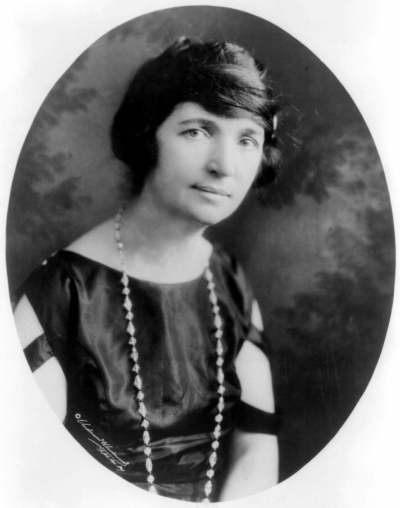Family planning is "the ability of individuals and couples to anticipate and attain their desired number of children and the spacing and timing of their births. It is achieved through use of contraceptive methods and the treatment of involuntary infertility." Family planning may involve consideration of the number of children a person wishes to have, including the choice to have no children, and the age at which a person wishes to have them. Things that may play a role on family planning decisions (highly variable from person to person): marital situation, career or work considerations, financial situations. If sexually active, family planning may involve the use of contraception and other techniques to control the timing of reproduction.
Family planning has been of practice since the 16th century by the people of Djenn in West Africa. Physicians advised women to space their children, having them every three years rather than too many and too quickly. Other aspects of family planning include sex education, prevention and management of sexually transmitted infections, pre-conception counseling and management, and infertility management. Family planning, as defined by the United Nations and the World Health Organization, encompasses services leading up to conception. Abortion is not typically recommended as a primary method of family planning, and access to contraception reduces the need for abortion.Family planning is sometimes used as a synonym or euphemism for access to and the use of contraception. However, it often involves methods and practices in addition to contraception. Additionally, many might wish to use contraception but are not necessarily planning a family (e.g., unmarried adolescents, young married couples delaying childbearing while building a career). Family planning has become a catch-all phrase for much of the work undertaken in this realm. However, contemporary notions of family planning tend to place a woman and her childbearing decisions at the center of the discussion, as notions of women's empowerment and reproductive autonomy have gained traction in many parts of the world. It is usually applied to a female-male couple who wish to limit the number of children they have or control pregnancy timing (also known as spacing children).
Family planning has been shown to reduce teenage birth rates and birth rates for unmarried women.
Margaret Higgins Sanger (born Margaret Louise Higgins; September 14, 1879 – September 6, 1966), also known as Margaret Sanger Slee, was an American birth control activist, sex educator, writer, and nurse. Sanger popularized the term "birth control", opened the first birth control clinic in the United States, and established organizations that evolved into the Planned Parenthood Federation of America.Sanger used her writings and speeches primarily to promote her way of thinking. She was prosecuted for her book Family Limitation under the Comstock Act in 1914. She was afraid of what would happen, so she fled to Britain until she knew it was safe to return to the US. Sanger's efforts contributed to several judicial cases that helped legalize contraception in the United States. Due to her connection with Planned Parenthood, Sanger is a frequent target of criticism by opponents of abortion. However, Sanger drew a sharp distinction between birth control and abortion and was opposed to abortions throughout the bulk of her professional career, declining to participate in them as a nurse. Sanger remains an admired figure in the American reproductive rights movement. She has been criticized for supporting eugenics.In 1916, Sanger opened the first birth control clinic in the United States, which led to her arrest for distributing information on contraception, after an undercover policewoman bought a copy of her pamphlet on family planning. Her subsequent trial and appeal generated controversy. Sanger felt that in order for women to have a more equal footing in society and to lead healthier lives, they needed to be able to determine when to bear children. She also wanted to prevent so-called back-alley abortions, which were common at the time because abortions were illegal in the United States. She believed that, while abortion may be a viable option in life-threatening situations for the pregnant, it should generally be avoided. She considered contraception the only practical way to avoid them.In 1921, Sanger founded the American Birth Control League, which later became the Planned Parenthood Federation of America. In New York City, she organized the first birth control clinic to be staffed by all-female doctors, as well as a clinic in Harlem which had an all African-American advisory council, where African-American staff were later added. In 1929, she formed the National Committee on Federal Legislation for Birth Control, which served as the focal point of her lobbying efforts to legalize contraception in the United States. From 1952 to 1959, Sanger served as president of the International Planned Parenthood Federation. She died in 1966 and is widely regarded as a founder of the modern birth control movement.

1916Oct, 16
In Brooklyn, New York, Margaret Sanger opens the first family planning clinic in the United States.
Choose Another Date
Events on 1916
- 9Jan
Gallipoli Campaign
World War I: The Battle of Gallipoli concludes with an Ottoman Empire victory when the last Allied forces are evacuated from the peninsula. - 21Feb
Battle of Verdun
World War I: In France, the Battle of Verdun begins. - 25Feb
Battle of Verdun
World War I: The Germans capture Fort Douaumont during the Battle of Verdun. - 9Apr
Battle of Verdun
World War I: The Battle of Verdun: German forces launch their third offensive of the battle. - 31May
Battle of Jutland
World War I: Battle of Jutland: The British Grand Fleet under the command of John Jellicoe, 1st Earl Jellicoe and David Beatty, 1st Earl Beatty engage the Imperial German Navy under the command of Reinhard Scheer and Franz von Hipper in the largest naval battle of the war, which proves indecisive.

 English
English  español
español  français
français  português
português  русский
русский  العربية
العربية  简体中文
简体中文 